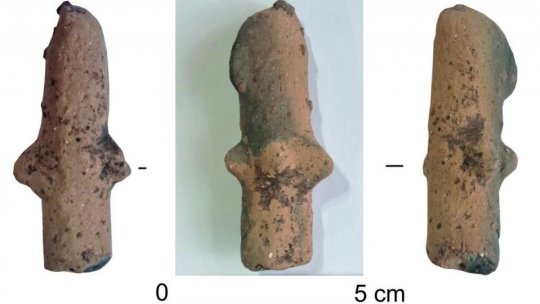Financial Press Review, 15 March
Articles in the Ziarul Financiar, the Curierul Naţional and the Economistul.

Articol de Dinu Dragomirescu, 15 Martie 2011, 19:29
The current account deficit decreased in January to a minimum of the last years as the exports first exceeded the imports in the last decade, the Ziarul Financiar wrote the.
‘Exports in January rose by 52 percent compared to last year’s same period and reached 14.6 billion lei (3.4 billion euros) while imports rose by 33 percent and totaled 15 4 billion lei (3.6 billion euros), according to the National Institute of Statistics.
In the Curierul Naţional Liviu Voinea, the manager of the Group of Applied Economics, showed the slight relativity of this result by reminding that ‘January 2010 was the month with the most drastic decrease in the exports and imports since the beginning of the crisis. After comparing it to this month it automatically resulted that exports have exploded while they are at their normal level, nothing unusual.’
The article’s headline: ‘Exports increase, but leu’s appreciation will be a problem.’ ‘Euro falls to new low of year, dollar again below 3 lei’, the Ziarul Financiar headlined.
‘Strengthening the leu is good news because it should contribute to easing the shock of the price rises of oil and food worldwide – where listings have nearly doubled since last summer. (...) A stronger leu will give headaches to the exporters, which should increase the calculated prices in foreign currency, which would affect their competitiveness.
The exports have been the only engine struggling for the 2010 economic recovery and there was further noticed one of the essential ingredients for getting out of recession, ‘wrote the newspaper.
In the Curierul Naţional, Andreea Paul Vass, the advisor to the prime minister, signed an article entitled ‘The budgetary revenues in GDP, its highest level since 2000. How does the Government aim to increase their budget revenues?’
The 33 percent increase of the budget revenues in the first two months of the year was explained by the improvement of the economic activity and by the collection, but also by the increases in the VAT and excise duties.
Also from the Curierul Naţional we learn that ‘the extremely high pollution tax, implemented by the Government since 1 January, has caused the fall of the old car registrations to its lowest level of the last two years. (...)’
‘As the pollution tax was increased up to three times since 2010, this caused losses in the state budget and did not have the desired effect of the authorities.’
From the Ziarul Financiar we learn that ‘the external debt jumped by 1.3 billion euros in January, reaching a new historic high of 92.1 billion euros. Thus, the external debt has come to represent over 75 percent of gross domestic product in 2010.’
The weekly Economistul published an interview with Professor Constantine Anghelache, vice president of the Romanian Society of Statistics.
He referred to ‘the unconvincing way in which Romania has asserted the positive elements due to the new position of a European country’, noting that ‘the access to the European’s grant funds has been made by a very small percentage.’ Thus, it was explained the ‘unwanted paradox ‘that ‘we are a net contributor country and not a beneficiary one.’
The Curierul Naţional issue opened with an article entitled ‘Nuclear energy, a too sensitive issue’, in which it was noticed that ‘the nuclear threat from Japan has alarmed the European officials.’ ‘In January 2011, in Europe there were 195 nuclear power reactors and 9 units under construction or scheduled to be built in six states. (...) The European officials want to determine, among other things, what is to be done in terms of safety of the nuclear power plants in case of earthquake and to establish reliable measures regarding the state of the cooling systems and containment of the radioactive substances.’
‘World currently facing most harmful mixture of events during peacetime’, the headline summarized the situation of a comprehensive article published in the Ziarul Financiar.
‘Mankind has to survive the biggest challenges after the Second World War, by facing the debt crisis facing in Europe, which, although slowing down, has questioned the very existence of the euro, the riots in northern Africa and in the Orient, who blew up the Arab world, and the earthquake in Japan which was ranked as the most costly natural disaster in the world’, we read in the article.
Translated by: Iulia Florescu
MA Student, MTTLC, Bucharest University













